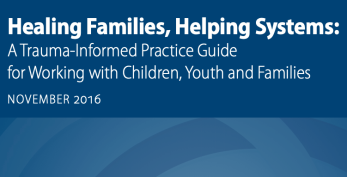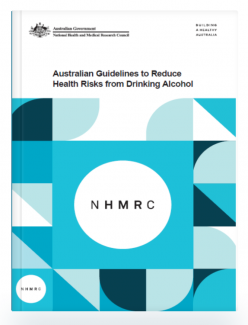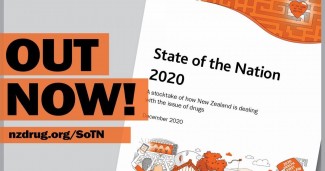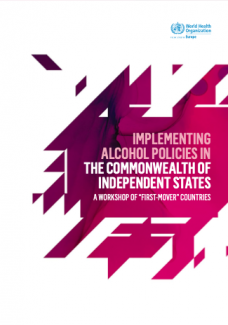
Search
Let's Talk E-cigarettes
Since coming on the market over a decade ago, e-cigarettes have divided opinion. A team of Oxford researchers are searching for new e-cigarette studies every month.
In this podcast, Dr Jamie Hartmann-Boyce and Dr Nicola Lindson talk about...
European Drug Prevention Prize 2021
The Pompidou Group calls for youth projects to submit applications for the 2021 edition of the European Drug Prevention Prize.
The Prevention Prize is awarded to highlight outstanding drug prevention projects that have proved successful in...
Australian Guidelines to Reduce Health Risks from Drinking Alcohol
The guidelines provide health professionals, policy makers and the Australian community with evidence-based advice on the health effects of drinking alcohol.
The guidelines aim to help individuals make informed decisions about drinking...
Drink Wise, Age Well Professional Resources
The Drink Wise, Age Well programme supported people to make healthier choices about alcohol as they age.
The programme was designed to change attitudes, combat stigma and reduce alcohol harm in the over 50s so they can live longer...
State of the Nation
The third edition of NZ Drug Foundation annual report on how New Zealand is dealing with alcohol and other drugs was published in December 2020.
The aim of State of the Nation is to provide a backdrop against which we can assess the impact...
Domestic Violence, Substance Misuse and Mental Ill-health: The Toxic Trio
Within research examining adverse childhood experiences, the toxic trio describes the risk of child abuse and neglect stemming from a child’s exposure to domestic violence, parental mental health issues and/or learning disability, and...
WiRED International Health Module on Quitting Smoking
Exploring the Impact of Work and the Workplace on Alcohol and Drug Use
There is growing evidence of the role workplaces play in shaping alcohol and other drug (AOD)-related behaviours and how to intervene to prevent or minimise problems.
This presentation outlines patterns and prevalence of AOD use among...
Motivational Interviewing Toolkit
Motivational Interviewing is an integral part of SBIRT, and its principles can also be applied to other therapeutic interactions revolving around behavior change.
The following materials, which have been developed by the Institute for...
Gender Differences and Stimulant Use
European and central Asian Countries Lead the Way in Cost-effective Alcohol Policies
A new report published by the World Health Organisation presents the Commonwealth of Independent States (CIS) countries – Armenia, Azerbaijan, Belarus, Kazakhstan, Kyrgyzstan, the Republic of Moldova, the Russian Federation, Tajikistan...
Men and Alcohol: Key Issues Report Launch
The 'Men and Alcohol: Key Issues’ report brings together key findings from the 2019/2020 SHAAP/IAS Men and Alcohol seminar series, and makes recommendations for research, policy and practice. To view/download the report, click here.
A Culture of Prevention
A recent commentary in Prevention Science explored the concept of a culture of prevention and what that means to research and practice.
In this session, Dr. Zili Sloboda opened the discussion by providing a general overview of the issues...
Master’s Program in Addiction Policy and Practice
Georgetown Announces Master’s Program in Addiction Policy and Practice.
The new program seeks to build a national policy workforce to respond to one of the most untreated chronic health conditions in the United States.
Georgetown...
‘It’s everywhere’ – alcohol’s public face and private harm
The Alcohol Health Alliance UK (AHA) is supporting the Commission on Alcohol Harm: An Inquiry into the Effects of Alcohol on Society.
The Commission was established to examine the current evidence on alcohol harm, recent trends in alcohol...
Australian National Alcohol Strategy 2019-2028
The Australian Government has released a new strategy to address alcohol-related harms in Australian communities. These harms include violence, disease, injuries, road deaths and an estimated 4,000 alcohol-attributable deaths per year1.
Th...
Plenary 3: A Focus on Treatment and Recovery
Prices, Alcohol Use Initiation and Heavy Episodic Drinking among Chilean Youth
Research suggests that early initiation of alcohol use is a risk factor for multiple problems later in life, including heavy episodic drinking and alcohol use disorders.
Prevention scientists are particularly interested in understanding...
Share the Knowledge: ISSUP members can post in the Knowledge Share – Sign in or become a member












